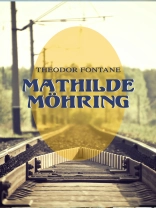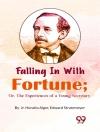Dieses e Book: ‘Mathilde Möhring’ ist mit einem detaillierten und dynamischen Inhaltsverzeichnis versehen und wurde sorgfältig korrekturgelesen.
Fontane erzählt in Mathilde Möhring von der jungen, pragmatisch veranlagten, dabei wenig anziehenden Mathilde Möhring, die mit ihrer Mutter in einer kleinen Berliner Wohnung in der Georgenstraße in der Nähe des Bahnhofes Friedrichstraße lebt. Mathildes Vater ist schon seit einigen Jahren tot, weshalb die Möhrings regelmäßig Untermieter aufnehmen müssen. Zur Zeit der Erzählung ist dies Hugo Großmann, ein Jura-Student kurz vor dem Examen, der jedoch die Lektüre literarischer Werke denen der Juristerei und abendliche Theaterbesuche dem Besuch der Universität vorzieht. Mathilde schätzt ihn in dieser Beziehung von vornherein richtig ein, sieht in ihm dennoch die Möglichkeit, aus den ärmlichen Verhältnissen herauszukommen. Somit legt sie sich einen regelrechten Plan zurecht, um einen guten Eindruck bei Hugo Großmann zu machen, der sie zunächst nicht beachtet, nach einer gewissen Zeit aber bei dem Resümee anlangt, ‘dass Thilde die Frau sei, die für ihn passe’. Er hat gemerkt, dass sie seinem verträumten und bequemen Naturell ein pragmatisches und ehrgeiziges Gegenstück sein könnte.
Theodor Fontane (1819-1898) war ein deutscher Schriftsteller. Er gilt als literarischer Spiegel Preußens und als bedeutendster deutscher Vertreter des Realismus.
Theodor Fontane
Mathilde Möhring [EPUB ebook]
Mathilde Möhring [EPUB ebook]
Придбайте цю електронну книгу та отримайте ще 1 БЕЗКОШТОВНО!
Мова Німецька ● Формат EPUB ● Сторінки 113 ● ISBN 9788027300600 ● Розмір файлу 0.9 MB ● Видавець e-artnow ● Місто Prague ● Країна CZ ● Опубліковано 2017 ● Завантажувані 24 місяців ● Валюта EUR ● Посвідчення особи 7497643 ● Захист від копіювання Соціальний DRM












